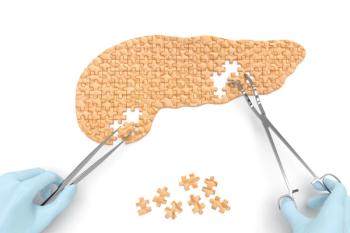
FDA Approves Orserdu for Metastatic Breast Cancer
Elacestrant, now with the brand name Orserdu, is an oral selective estrogen receptor degrader (SERD), which works by blocking the effects of estrogen on hormone receptor-positive breast cancer cells.
The FDA has
Developed by Stemline Therapeutics (a subsidiary of Menarini Group), Orserdu is an oral selective estrogen receptor degrader (SERD). SERDs work by blocking the effects of estrogen on hormone receptor-positive breast cancer cells. ESR1 mutations are present in up to 40% of ER+, HER2- advanced or metastatic breast cancers.
In a press release, Stemline indicated that Orserdu will be available soon and the company will offer financial assistance.
Approval was based on data from the phase 3 EMERALD study, a multicenter trial that enrolled 478 postmenopausal women and men with ER-positive, HER2-negative advanced or metastatic breast cancer of which 228 patients had ESR1 mutations. The study compared Orserdu with AstraZeneca’s Faslodex (fulvestrant), the only other FDA-approved SERD, plus letrozole, anastrozole, exemestane.
In the 228 (48%) patients with ESR1 mutations, median progression-free survival was 3.8 months in the Orserdu arm and 1.9 months in the Faslodex arm. An exploratory analysis of progression-free survival in the 250 (52%) patients without ESR1 mutations showed a hazard ratio of 0.86, indicating that the improvement in the intent-to-treat population was primarily attributed to the results seen in the ESR1 mutated population.
The most common adverse events were musculoskeletal pain, nausea, increased cholesterol, increased AST, increased triglycerides, fatigue, decreased hemoglobin, vomiting, increased ALT, decreased sodium, increased creatinine, decreased appetite, diarrhea, headache, constipation, abdominal pain, hot flush, and dyspepsia.
In December 2022, additional data from the EMERALD study were
“This suggests elacestrant may have the potential to become a new standard of care as a monotherapy endocrine sequencing option in ER+, HER2- advanced breast cancer after progression on CDK4/6i, before moving to combination therapies,” Virginia Kaklamani, MD, DSc, breast medical oncologist and professor of medicine, UT Health San Antonio, MD Anderson Cancer Center, said in a press release at the time.
The FDA also approved the Guardant360 CDx assay as a companion diagnostic device to identify patients with breast cancer for treatment with Orserdu.
Newsletter
Pharmacy practice is always changing. Stay ahead of the curve with the Drug Topics newsletter and get the latest drug information, industry trends, and patient care tips.























